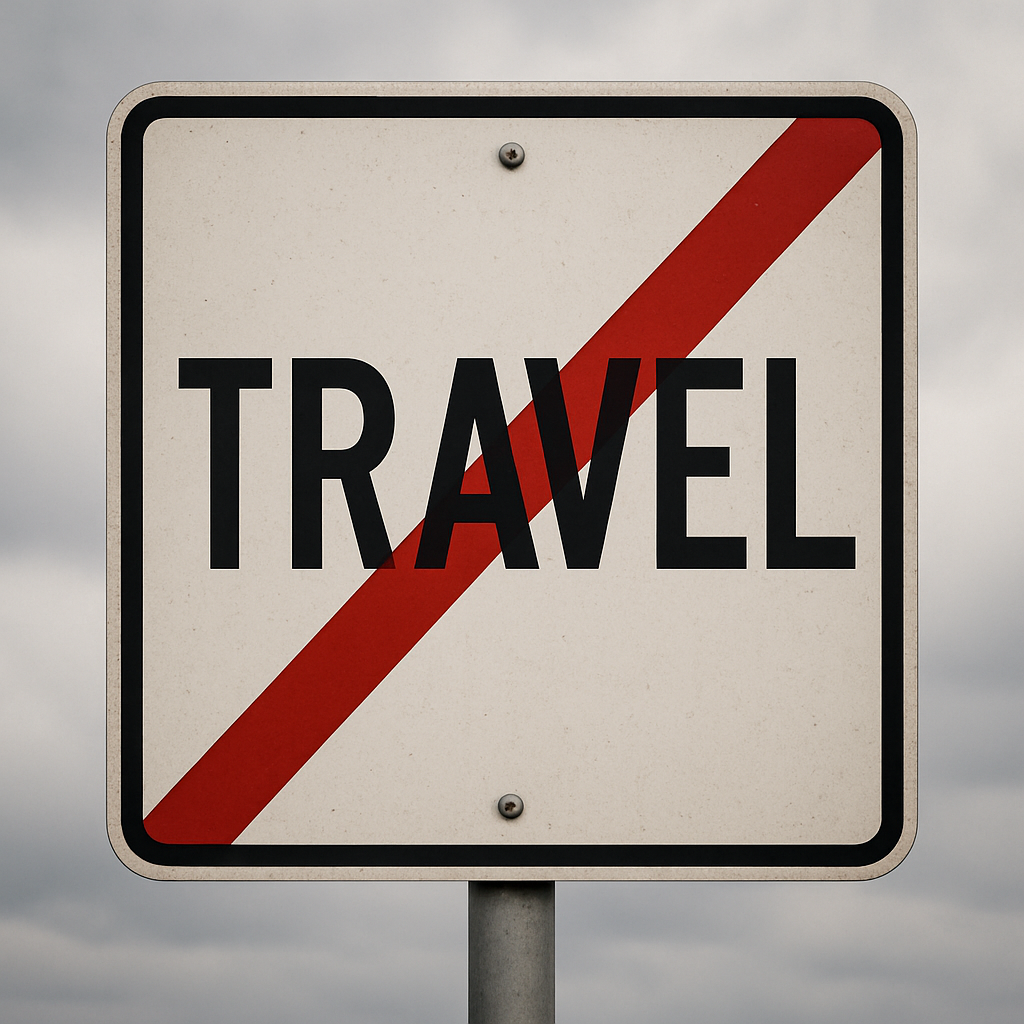On June 4, 2025, President Trump issued a Presidential Proclamation Restricting the Entry of Foreign Nationals to Protect the United States from Foreign Terrorists and Other National Security and Public Threats.
The travel ban takes effect Monday June 9, 2025, at 12:01 am EDT.
The administration invokes national security and public safety as its justification for these sweeping restrictions. Specifically, the Proclamation states that the President “considered various factors, including each country’s screening and vetting capabilities, information sharing policies, and country-specific risk factors — including whether each country has a significant terrorist presence within its territory, its visa-overstay rate, and its cooperation with accepting back its removable nationals.”
Full Travel Ban: The ban will fully suspend entry for immigrant and nonimmigrant nationals from these countries:
- Afghanistan
- Burma
- Chad
- Republic of Congo
- Equatorial Guinea
- Eritrea
- Haiti
- Iran
- Libya
- Somalia
- Sudan
- Yemen
Partial Travel Ban: The ban suspends entry for immigrant, B-1, B-2, B-1/B-2, F, M, and J visa holders, and reduces the of validity for other nonimmigrant visas (presumably to reciprocity schedule minimum) for the nationals of the following countries:
- Burundi
- Cuba
- Laos
- Sierra Leone
- Togo
- Turkmenistan
- Venezuela
Possible Future Suspension of Egypt: The proclamation asks the Attorney General, DHS Secretary, and Director of National Intelligence to whether Egypt should be covered by the travel ban.
Scope:
- The travel ban only applies to those who (a) are outside the U.S. on June 9, 2025, at 12:01 am EDT, and (b) are not in possession of a valid immigrant or nonimmigrant visas as of that date.
- No immigrant or nonimmigrant visa issued before June 9, 2025, will be revoked pursuant to this proclamation.
- The Proclamation does not limit the ability for individuals to seek asylum, refugee status, withholding of removal, or protection under the Convention Against Torture.
Exceptions: The travel ban does not apply to:
- Permanent residents;
- Dual nationals of a non-listed country (as long as the unaffected passport is presented);
- Those with the following visas: A-1, A-2, C-2, C-3, G-1, G-2, G-3, G-4, NATO-1, NATO-2, NATO-3, NATO-4, NATO-5, or NATO-6;
- Athletes and coaches in World Cup, Olympics, or major sporting event;
- Immediate relative immigrant visas (IR-1/CR-1, IR-2/CR-2, IR-5) with “with clear and convincing evidence of identity and family relationship (e.g., DNA)”;
- Adoptions (IR-3, IR-4, IH-3, IH-4);
- Afghan Special Immigrant Visas;
- Special Immigrant Visas for US Government employees; or
- Immigrant visas for ethnic and religious minorities facing persecution in Iran.
Waivers:
- The Attorney General and Secretary of State can make case-by-case exceptions if travel would advance a critical U.S. national interest, including to participate in criminal proceedings as a witness. As with prior bans, these exceptions may be made by a designee (presumably consular staff) and likely provided in very limited circumstances. The precise criteria and procedures governing these exceptions remain ambiguous, leaving the scope and their consistency of their implementation open to interpretation.
Review of This Policy
- Within 90 days of the proclamation and every 180 days thereafter, the Attorney General, the Department of Homeland Security, the Department of State, and Director of National Intelligence shall submit a report recommending the continuation, termination, modification, or supplementation of the suspensions.
How the 2025 Travel Ban Compares to Trump’s First-Term Travel Ban
In his first term, President Trump invoked this authority to restrict some or nearly all visas from 15 countries. In 2018, in Trump v. Hawaii, the U.S. Supreme Court upheld President Trump’s third effort to impose a travel ban, after courts blocked his first two efforts. The Court rejected the argument that barring individuals from entering the United States solely based on their nationality undermines the fundamental principles of fairness that define our immigration system.
2025 Travel Ban
Full Travel Ban
Afghanistan
Chad
Equatorial Guinea
Eritrea
Haiti
Iran
Libya
Myanmar
Republic of the Congo
Somalia
Sudan
Yemen
Partial Travel Ban
Burundi
Cuba
Laos
Republic of the Congo
Sierra Leone
Togo
Turkmenistan
Venezuela
Comparison to First-Term Travel Ban
Countries Added
Afghanistan
Burundi
Cuba
Equatorial Guinea
Haiti
Laos
Republic of the Congo
Sierra Leone
Togo
Turkmenistan
Countries Deleted
Iraq
Syria
North Korea
Nigeria
Tanzania
Kyrgyzstan

Leave a Reply